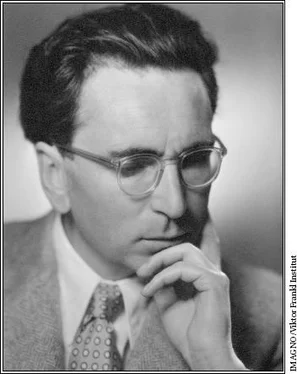As we see, anticipatory anxiety has to be counteracted by paradoxical intention; hyper-intention as well as hyper- reflection have to be counteracted by dereflection; dereflection, however, ultimately is not possible except by the patient’s orientation toward his specific vocation and mission in life. 16
It is not the neurotic’s self-concern, whether pity or contempt, which breaks the circle formation; the cue to cure is self-transcendence!
The Collective Neurosis
Every age has its own collective neurosis, and every age needs its own psychotherapy to cope with it. The existential vac- uum which is the mass neurosis of the present time can be described as a private and personal form of nihilism; for nihilism can be defined as the contention that being has no meaning. As for psychotherapy, however, it will never be able to cope with this state of affairs on a mass scale if it does not keep itself free from the impact and influence of the contemporary trends of a nihilistic philosophy; otherwise it represents a symptom of the mass neurosis rather than its possible cure. Psychotherapy would not only reflect a nihilistic philosophy but also, even though unwillingly and unwittingly, transmit to the patient what is actually a caricature rather than a true picture of man.
First of all, there is a danger inherent in the teaching of man’s “nothingbutness,” the theory that man is nothing but the result of biological, psychological and sociological conditions, or the product of heredity and environment. Such a view of man makes a neurotic believe what he is prone to believe anyway, namely, that he is the pawn and victim of outer influences or inner circumstances. This neurotic fatalism is fostered and strengthened by a psychotherapy which denies that man is free.
To be sure, a human being is a finite thing, and his freedom is restricted. It is not freedom from conditions, but it is freedom to take a stand toward the conditions. As I once put it: “As a professor in two fields, neurology and psychiatry, I am fully aware of the extent to which man is subject to biological, psychological and sociological conditions. But in addition to being a professor in two fields I am a survivor of four camps —concentration camps, that is—and as such I also bear witness to the unexpected extent to which man is capable of defying and braving even the worst conditions conceivable.” 17
Critique of Pan-Determinism
Psychoanalysis has often been blamed for its so-called pansexualism. I, for one, doubt whether this reproach has ever been legitimate. However, there is something which seems to me to be an even more erroneous and dangerous assumption, namely, that which I call “pan-determinism.” By that I mean the view of man which disregards his capacity to take a stand toward any conditions whatsoever. Man is not fully conditioned and determined but rather determines himself whether he gives in to conditions or stands up to them. In other words, man is ultimately self-determining. Man does not simply exist but always decides what his existence will be, what he will become in the next moment.
By the same token, every human being has the freedom to change at any instant. Therefore, we can predict his future only within the large framework of a statistical survey referring to a whole group; the individual personality, however, remains essentially unpredictable. The basis for any predictions would be represented by biological, psychological or sociological conditions. Yet one of the main features of human existence is the capacity to rise above such conditions, to grow beyond them. Man is capable of changing the world for the better if possible, and of changing himself for the better if necessary.
Let me cite the case of Dr. J. He was the only man I ever encountered in my whole life whom I would dare to call a Mephistophelean being, a satanic figure. At that time he was generally called “the mass murderer of Steinhof” (the large mental hospital in Vienna). When the Nazis started their euthanasia program, he held all the strings in his hands and was so fanatic in the job assigned to him that he tried not to let one single psychotic individual escape the gas chamber. After the war, when I came back to Vienna, I asked what had happened to Dr. J. “He had been imprisoned by the Russians in one of the isolation cells of Steinhof,” they told me. “The next day, however, the door of his cell stood open and Dr. J. was never seen again.” Later I was convinced that, like others, he had with the help of his comrades made his way to South America. More recently, however, I was consulted by a former Austrian diplomat who had been imprisoned behind the Iron Curtain for many years, first in Siberia and then in the famous Lubianka prison in Moscow. While I was examining him neurologically, he suddenly asked me whether I happened to know Dr. J. After my affrmative reply he continued: “I made his acquaintance in Lubianka. There he died, at about the age of forty, from cancer of the urinary bladder. Before he died, however, he showed himself to be the best comrade you can imagine! He gave consolation to everybody. He lived up to the highest conceivable moral standard. He was the best friend I ever met during my long years in prison!”
This is the story of Dr. J., “the mass murderer of Steinhof.” How can we dare to predict the behavior of man? We may predict the movements of a machine, of an automaton; more than this, we may even try to predict the mechanisms or “dynamisms” of the human psyche as well. But man is more than psyche .
Freedom, however, is not the last word. Freedom is only part of the story and half of the truth. Freedom is but the negative aspect of the whole phenomenon whose positive aspect is responsibleness. In fact, freedom is in danger of degenerating into mere arbitrariness unless it is lived in terms of responsibleness. That is why I recommend that the Statue of Liberty on the East Coast be supplemented by a Statue of Responsibility on the West Coast .
The Psychiatric Credo
There is nothing conceivable which would so condition a man as to leave him without the slightest freedom. Therefore, a residue of freedom, however limited it may be, is left to man in neurotic and even psychotic cases. Indeed, the innermost core of the patient’s personality is not even touched by a psychosis.
An incurably psychotic individual may lose his usefulness but yet retain the dignity of a human being. This is my psychiatric credo. Without it I should not think it worthwhile to be a psychiatrist. For whose sake? Just for the sake of a damaged brain machine which cannot be repaired? If the patient were not definitely more, euthanasia would be justified.
Psychiatry Rehumanized
For too long a time—for half a century, in fact—psychiatry tried to interpret the human mind merely as a mechanism, and consequently the therapy of mental disease merely in terms of a technique. I believe this dream has been dreamt out. What now begins to loom on the horizon are not the sketches of a psychologized medicine but rather those of a humanized psychiatry.
A doctor, however, who would still interpret his own role mainly as that of a technician would confess that he sees in his patient nothing more than a machine, instead of seeing the human being behind the disease!
A human being is not one thing among others; things determine each other, but man is ultimately self-determining. What he becomes—within the limits of endowment and environment—he has made out of himself. In the concentration camps, for example, in this living laboratory and on this testing ground, we watched and witnessed some of our comrades behave like swine while others behaved like saints. Man has both potentialities within himself; which one is actualized depends on decisions but not on conditions.
Читать дальше












